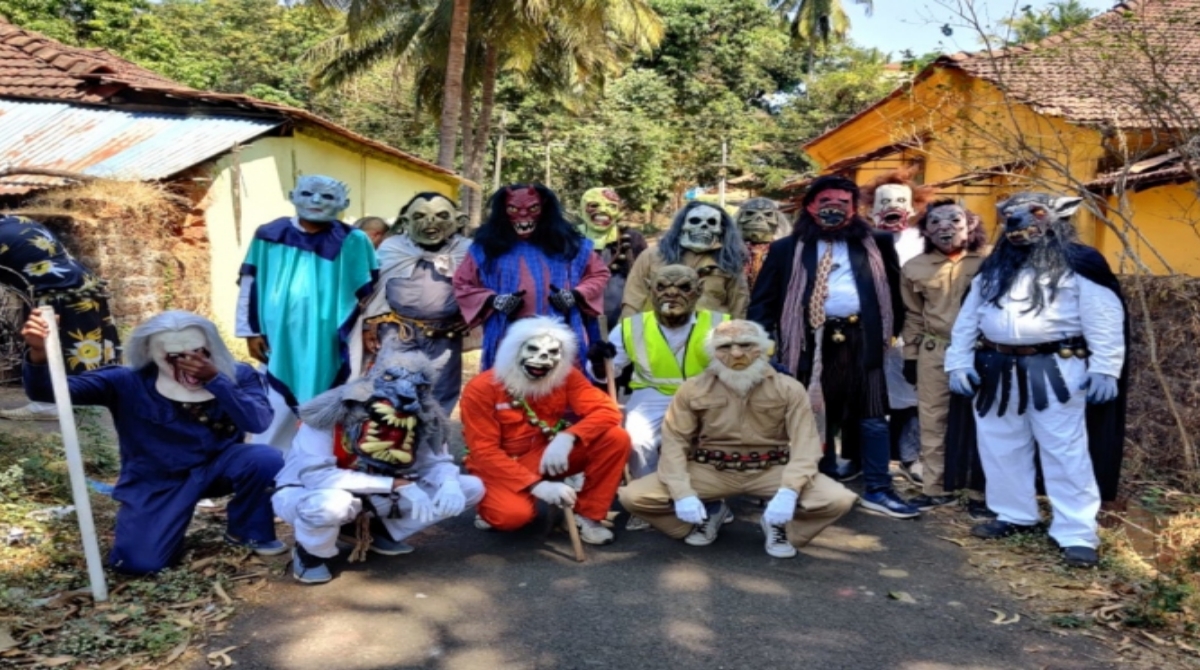Just a few kilometres away from mainland Panjim lie two island villages on the Mandovi river, accessible solely by ferry boat. The smaller island, Divar, a pilgrimage web site for Hindus in historical times, is domestic to 8,000 human beings and three special festivals. One of these three festivals is the Potekar festival of Divar, which takes place someday between February and early March, three days prior to Ash Wednesday. Ash Wednesday marks the beginning of Lent, a solemn 40-day length of fasting and abstinence for Christians that ends on Easter Sunday. On Ash Wednesday, churchgoers attend a service where crosses are marked on their foreheads with ash to signify mourning, repentance and mortality.

In retaining with practices observed through many Catholic communities around the world, in the duration prior to Lent, people enhance the streets in brilliant hues and compete to put together the most vivid Carnival floats for the road parade.
In Divar, however, people have a good time during Potekar festival of Divar for these three days, the place the neighbourhood childhood put on homemade, hand-painted papier-mache masks, regularly depicting wild animals, and scruffy outfits with cowbells around their waists or ankles.

Due to the ghoulish get-ups and light-hearted ‘spooking’, Potekar festival of Divar is often likened to Halloween.
Two other festivals are unique to Divar – Bonderam (a festival held in remembrance of an old land dispute that was resolved during the Portuguese era by placing coloured flags at the property boundaries) and the Feast of Our Lord of Redeemer (a Catholic feast whose origins can be traced back to a statue brought back from Sicily by a villager and sculptor called Caetano Ferrao) – however, Potekar has its origins in the pre-Portuguese era. It is presumably linked to customs that were practised in the village communes, locally known as the gaunkari system.
First introduced by early settlers in Goa’s coastal villages, the gaunkari system was a way of managing and maintaining village commons such as reclaimed cultivable land, fishing ponds and waterways, based on the principles of collective ownership and distributed responsibilities.
Potekar means ‘shabby’, and the title fits well with the dishevelled look of the men who dress up in costumes and masks. Some believe that the act of frightening children at Potekar was an exercise in teaching children morals and values.
It is also believed that long ago, the people who used to sweep the compounds of houses in the village would come by to demand a reward— hence the unkempt getup and the custom of roaming the village, demanding and receiving snacks and drinks from locals. It is believed that these compound sweepers would walk around, speaking in falsetto voices to hide their identity, all the while being mocked by the youth.
There is no specific programme during these three festive days. The islanders, dressed in themes, costumes of animals, and home-made and hand-painted masks, roam around the village carrying a sack. They also wear cowbells on their ankles and around their waists, the ringing of which can be heard across great distances. Crowds are unable to recognise them due to their change in voice and mannerisms.
When they visit homes, people offer food and beverages like goddxem (sweet dish), beer and sometimes even lunch. When children see them or hear the bells jingling, they run for their lives.

In the past, only men would dress in scary costumes but recently girls also participate enthusiastically. Earlier, the entire festival was known as a creepy scary festival but as years rolled on, children were no longer scared by the weird figures.
The festival encourages the youth to take part in it which in turn makes the atmosphere lively and fun-filled. In Divar, the Potekar tradition, albeit with some difference, has remained up to this day.


